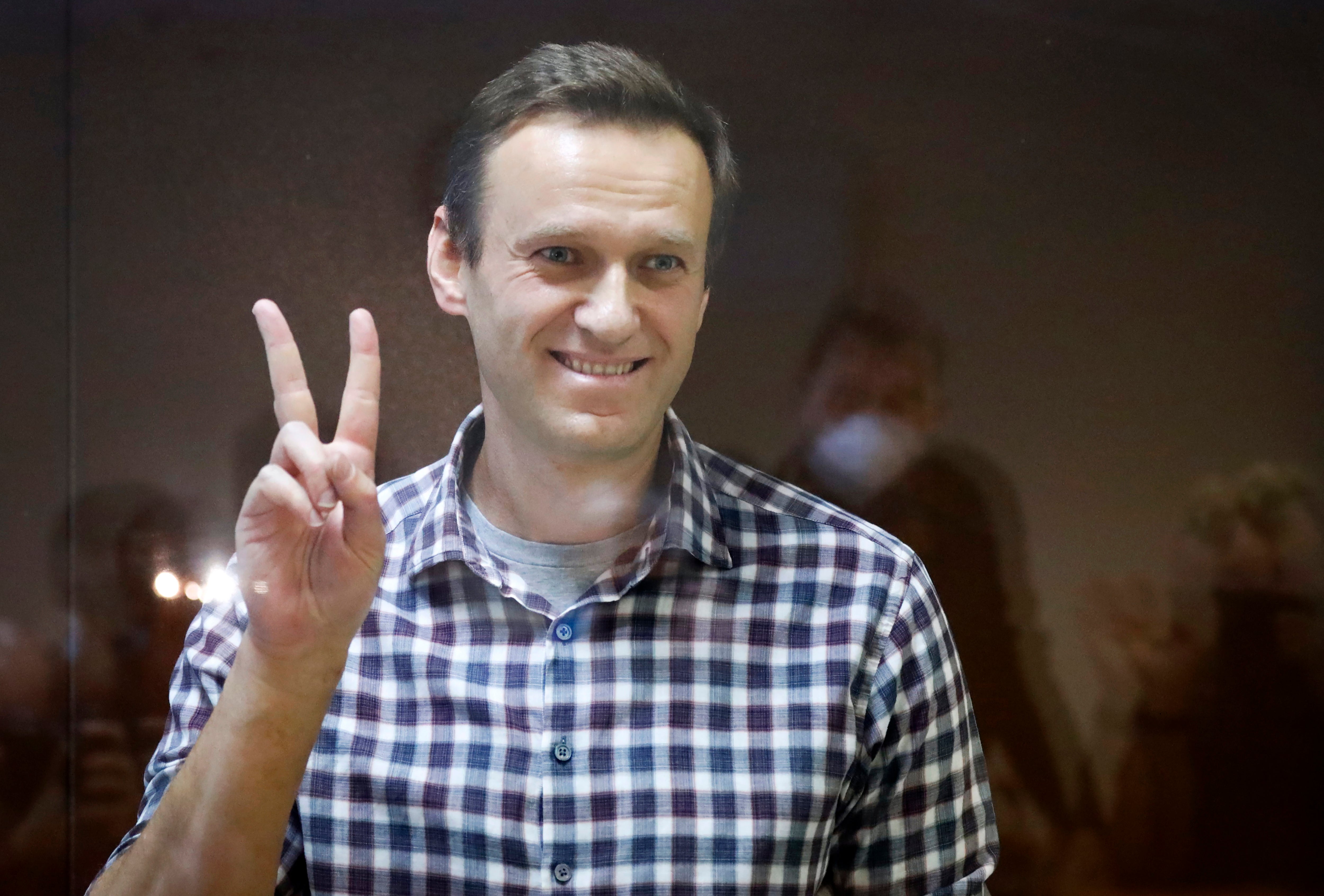Russia urges Apple, Google to remove Navalny app from stores
Russia’s state communications watchdog has warned Apple and Google that they could face fines if they fail to remove an app created by allies of jailed Russian opposition leader Alexei Navalny from their stores

Russia's state communications watchdog warned Apple and Google Thursday that they could face fines if they fail to remove an app created by allies of jailed Russian opposition leader Alexei Navalny from their stores.
The agency, Roskomnadzor, warned Apple and Google that their failure to remove Navalny's app could be interpreted as interference in Russian elections.
Navalny’s app promotes his Smart Voting strategy — a project designed to support candidates who are most likely to defeat those from the Kremlin’s main United Russia party.
Russian opposition supporters, independent media and human rights activists have face increased government pressure in the run-up to the Sept. 19 parliamentary election. Navalny’s allies have linked the crackdown to the Kremlin’s effort to steamroll the opposition and try to preserve a dominant position for United Russia.
In June, a Russian court outlawed Navalny’s Foundation for Fighting Corruption and a network of his regional offices as extremist organizations, a ruling that barred people associated with the groups from seeking public office and exposed them to lengthy prison terms.
Russian authorities also blocked some 50 websites run by his team or supporters for allegedly disseminating extremist group propaganda, and targeted his top associates.
The Sept. 19 vote is widely seen as an important part of President Vladimir Putin’s efforts to cement his rule before Russia's 2024 presidential election. The 68-year-old Russian leader, who has been in power for more than two decades, pushed through a constitutional reform last year that would potentially allow him to hold onto power until 2036.
The 45-year-old Navalny is Putin’s most determined political foe. He was arrested in January upon returning from Germany, where he spent five months recovering from a nerve agent poisoning that he blames on the Kremlin — an accusation rejected by Russian officials.
In February, Navalny was ordered to serve 2½ years in prison for violating the terms of a suspended sentence from a 2014 embezzlement conviction that he dismissed as politically motivated.
Russian authorities have increased pressure on major social media platforms after criticizing them for acting as a tool to help bring tens of thousands of people into the streets to demand Navalny's release in a wave of protests early this year.
Facebook and Twitter have been fined repeatedly for failing to remove content that Russian authorities deemed unlawful, and Roskomnadzor early this year slowed down the speed at which Twitter can operate.
Russian Foreign Ministry spokeswoman Maria Zakharova warned that Moscow wouldn’t tolerate the IT-giants refusal to abide by the Russian law and remove the banned content.
“Such arrogant and selective behavior and demonstrative ignoring of repeated requests from the relevant Russian agencies regarding the content designated as extremist is particularly unacceptable in the context of the current electoral processes,” Zakharova said. “It would be legitimate to interpret further connivance of U.S. IT-giants to the publication of the banned materials as an interference in domestic affairs of the Russian state."